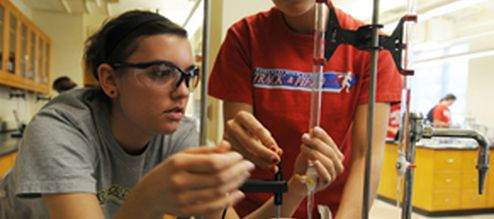Minimally Cationic Cell-Permeable Miniature Proteins via α-Helical Arginine Display
Document Type
Article
Publication Date
2-14-2008
Publication Source
Journal of the American Chemical Society
Abstract
Protein therapeutics are a blossoming industry, with revenues exceeding $51 billion in 2005 and a growth rate nearly three times that of the overall pharmaceutical industry. Although it has been known for decades that cationic polymers can transport molecular cargos across the plasma membrane, inefficient cellular delivery continues to impede the development of protein drugs. Our lab recently reported that small, folded proteins containing a minimal cationic motif embedded within a type II polyproline (PPII) helix efficiently cross the plasma membrane of eukaryotic cells. Here we demonstrate that an even smaller cationic motif can be embedded within the α-helix of a small, folded protein to generate molecules that penetrate cells significantly more efficiently than arginine-rich sequences or Tat. Our results suggest that the function of cell permeability can be encoded by judicious placement of as few as 2−3 additional arginine residues on a protein α-helix.
Inclusive pages
2948-2949
ISBN/ISSN
0002-7863
Copyright
Copyright © 2008 American Chemical Society
Publisher
American Chemical Society
Volume
130
Peer Reviewed
yes
Issue
10
eCommons Citation
Smith, Betsy A.; Daniels, Douglas S.; Coplin, Abigail E.; Jordan, Gregory E.; McGregor, Lynn M.; and Schepartz, Alanna S., "Minimally Cationic Cell-Permeable Miniature Proteins via α-Helical Arginine Display" (2008). Chemistry Faculty Publications. 93.
https://ecommons.udayton.edu/chm_fac_pub/93
COinS



